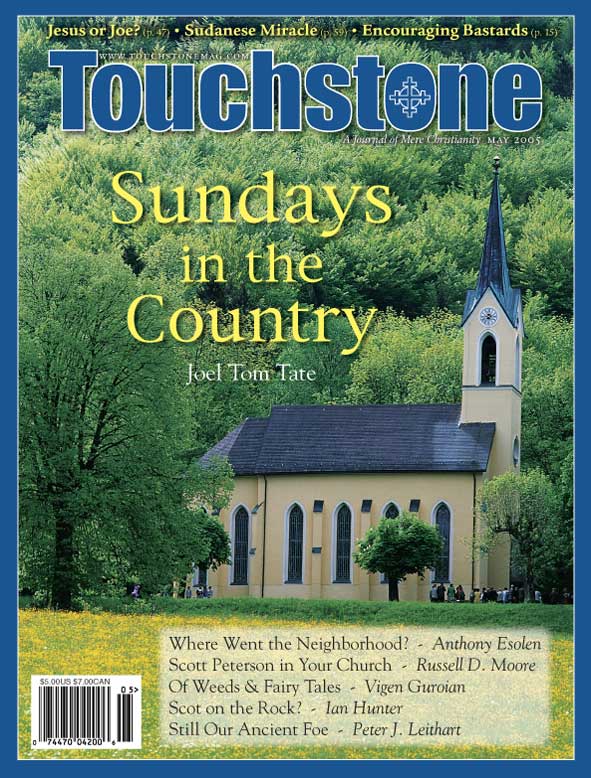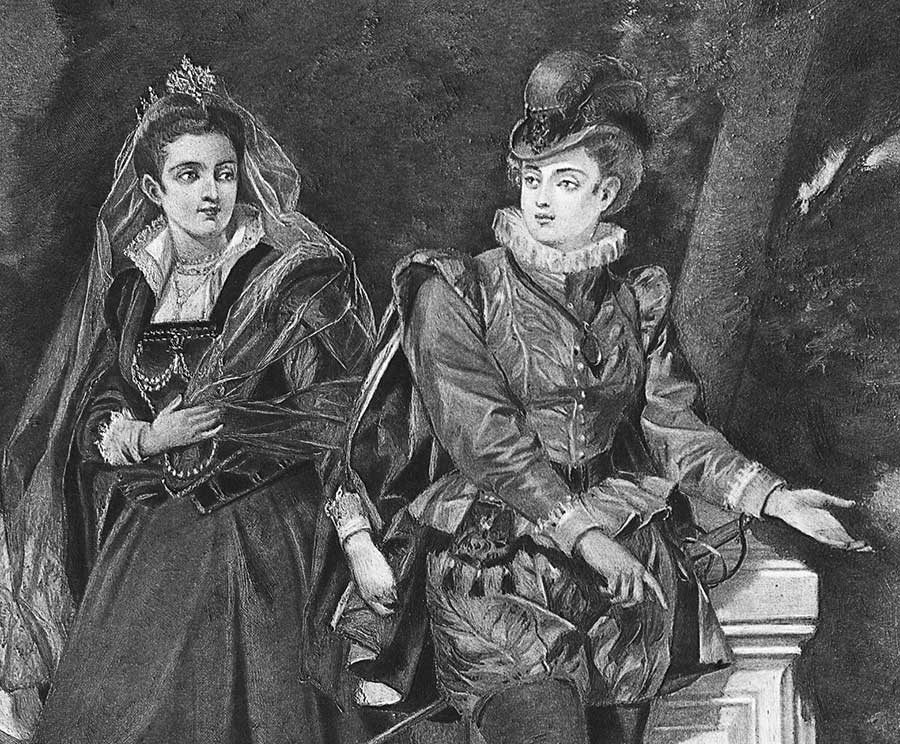Feature
Where Went the Neighborhood?
On the Neighbors We Have Lost But Desperately Need
The scribe had just been praised for answering well, but he could not resist pressing his guest, hoping perhaps for a misstep that he might later use against him. “And who,” he asks, “is my neighbor?” That question ought to make the modern American uneasy, and, if the atomizing trends of our culture continue much longer, it ought to make everybody else in the Western world uneasy, too.
Of course it happens not to make us uneasy, because we have read a hundred times the story that follows, planed it right down into triteness and oblivion. We anticipate what we think is its moral. Everybody is my neighbor.
The street-roaming woman in Delhi whose wrist is so thin I can lay my thumb and forefinger around it, is my neighbor. The journalist in Djakarta thrown into a malarial prison for daring to suggest that some government factotum is not the voice of Allah, is my neighbor. The boy in Port-au-Prince whose innocence has long been warped and initiative stifled by fears of murder or blood cults or both, is my neighbor. All the world’s huddling masses, yearning to breathe free, trodden into the mire by tyrants, robbed of hope by stupid staring idols, living in squalor, their very flesh bearing the pustules of destitution and debauchery, with hardly a rag to cover their shame, are my neighbors.
All they with the good grace to be wretched far out of my sight and smell are my neighbors. Everybody in the world is my neighbor—everybody, that is, except the person next door. For all I know, that unpleasant creature may have two heads, one for his daily ignorance and one for receiving messages from his home planet whirling around Procyon.
Ethereal Neighbors
Indeed, our own next-door neighbor is a middle-aged woman named Noreen. She is divorced and has a couple of grown children. Having said that, I have said all we know about Noreen. On our other side lives a young childless couple. The truck in his driveway shows he works for the cable company. We know no more.
If Jesus’ parable is an extended metaphor for a life of mercy—if we are to treat those suffering souls whom chance has thrown in our way as if they were people among whom we live—then we have taken the wheels off that metaphor’s vehicle. If you do not really have neighbors, how can you understand Jesus’ command to be a neighbor to others? You have to disembody it, etherealize it into a manifesto of general benevolence and almsgiving (perhaps of the political variety, whereby you stoutly sacrifice the alms of other people). Jesus tells the story of the Good Samaritan, and you hear a call to be kind to your friends and to give to the United Way.
But before I come to how I think that parable must be understood, I should vindicate myself and my family just a bit, and in so doing point out a few reasons why neighborhood life in America is past. You see, my wife and I are not by nature sullen or withdrawn or suspicious. We live in a suburb of Providence, Rhode Island, but we have begun to spend summers in a small home in an old fishing village, called West Arichat, on the coast of Cape Breton Island, in Nova Scotia. In that village, after only a few weeks, we have met more people—have been in their homes, have eaten with them—than we have in eight years in our place in the States.
Now, I like Canadians, and no doubt part of the difference is due to their irrepressible friendliness and simple candor. But that begs the question. Why should they be so? Our neighbors on Cape Breton are only beginning to learn who we are, yet they befriend us and help us, as neighbors. Why?
A Loyal Place
Anthony Esolen is Distinguished Professor of Humanities at Thales College and the author of over 30 books, including Real Music: A Guide to the Timeless Hymns of the Church (Tan, with a CD), Out of the Ashes: Rebuilding American Culture (Regnery), and The Hundredfold: Songs for the Lord (Ignatius). He has also translated Dante’s Divine Comedy (Random House) and, with his wife Debra, publishes the web magazine Word and Song (anthonyesolen.substack.com). He is a senior editor of Touchstone.
subscription options
Order
Print/Online Subscription

Get six issues (one year) of Touchstone PLUS full online access including pdf downloads for only $39.95. That's only $3.34 per month!
Order
Online Only
Subscription

Get a one-year full-access subscription to the Touchstone online archives for only $19.95. That's only $1.66 per month!
bulk subscriptions
Order Touchstone subscriptions in bulk and save $10 per sub! Each subscription includes 6 issues of Touchstone plus full online access to touchstonemag.com—including archives, videos, and pdf downloads of recent issues for only $29.95 each! Great for churches or study groups.
Transactions will be processed on a secure server.
more from the online archives

11.5—September/October 1998
Speaking the Truths Only the Imagination May Grasp
An Essay on Myth & 'Real Life' by Stratford Caldecott
calling all readers
Please Donate
"There are magazines worth reading but few worth saving . . . Touchstone is just such a magazine."
—Alice von Hildebrand
"Here we do not concede one square millimeter of territory to falsehood, folly, contemporary sentimentality, or fashion. We speak the truth, and let God be our judge. . . . Touchstone is the one committedly Christian conservative journal."
—Anthony Esolen, Touchstone senior editor









